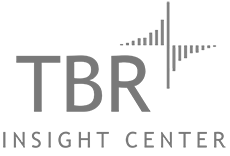Cloud vendors go deep with industry solutions
Google Cloud and SAP are flagship examples of vendors building vertically oriented strategies with the introduction of industry cloud solutions
Over the last year, as more organizations accelerated the migration to the cloud, it has become evident that a horizontal cloud does not always meet the specific needs of certain industries, especially highly regulated ones such as banking or healthcare. In response to the increasing complexity of certain industries and the regulations that they are governed by, along with the overall uptick in cloud adoption during the era of COVID-19, cloud vendors are investing in the development of clouds that cater to industry-specific nuances and the demands of safely distanced or remote work. The narrowing of focus is part of broader strategic objectives that extend beyond just the immediate commercialization of opportunity and revenue impact.
Initiatives by SAP and Google highlight how innovation and technological advancements in AI and machine learning (ML) factor into the evolution of industry clouds. With recent rollouts and announcements, both vendors have highlighted the importance of creating new types of data-driven cloud solutions powered by AI and ML, augmented by networks of customers and partners. While SAP and Google currently participate in fruitful partnerships together, it will be interesting to watch the common goal of delivering vertical-specific capabilities to their customers unfold to see whether the two companies align or compete in this new chapter of cloud defined by industry.
Google leads with innovation in ML and AI to augment, rather than replace, legacy solutions
In February Google Cloud CEO Thomas Kurian emphasized that Google Cloud’s top priority is to develop a new generation of applications, which will be able to extract data from traditional line-of-business (LOB) applications such as those used for CRM and use technologies like AI and ML to optimize outcomes. Kurian reinforced the strategy of veering away from the development of traditional enterprise applications in favor of industry-specific apps that are designed to extract data from these traditional applications.
Leading up to 2020, the migration timelines for the 80% of companies that had not yet made the move to the cloud rested on comfortably planned milestones that indicated an evolution versus an urgent call to change. Looking back over the last six months, organizations suddenly found themselves in the thick of the impetus to migrate to the cloud and to do so quickly. Even organizations whose cloud journeys were well underway prior to the COVID-19 outbreak are narrowing their strategies and turning to clouds that cater to the specific requirements and compliance standards that industries, especially those that are highly regulated, including the government, require. As a result, a number of leading cloud vendors such as IBM (NYSE: IBM), Google (Nasdaq: GOOGL) and SAP (NYSE: SAP) have recently made strides in building out and refining their cloud strategies to cater to the specific requirements and demands of certain industries.


Leave a Reply
Want to join the discussion?Feel free to contribute!